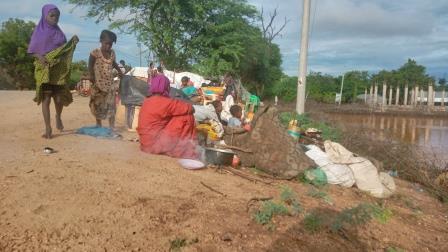The Busia Deputy Governor, Moses Mulomi has urged the national government to give the organization handling locust invasion in North Eastern region the necessary support.
Speaking to the press in his office on Thursday, Mulomi who is also an entomologist said the presence of the locusts in the country should be of great concern to all citizens explaining that Kenya is an invasion area of the desert locust and not a breeding area.
“The fact that it has gone beyond a breeding area is a danger to all of us,” he said, adding that the insect has a capacity to create more than three to five generations in a year if not properly controlled.
“If a swarm is 40 million insects and 20 million of them are productive and each one of them is laying up to three different pots of eggs at a time, it means 20 million insects can generate nearly two billion insects,’ he said, adding that the relevant organizations should be given adequate funding and resources.
The Scientist at the same time said that there is need to deploy technical people on the ground explaining that the population and growth of such insects depends on the temperature and heavy rains that are currently pounding most parts of the country.
“I would also like to see an issue about environmental management to ensure that the chemicals used do not harm plants and animals,” he said.
Mulomi said that the country should be organized to ensure that the locusts do not go beyond the areas they have reached.
He hailed the government for the efforts being made to contain the situation but urged it to offer the necessary support to those handling the situation.
“Unfortunately, we are seeing a lot of laymen talking about locusts instead of scientists who understand the lifecycle of the insect,” he said.
Mulomi stated that aerial spraying will be very effective but ground spraying will also be necessary to control the insects at the young stages.
He urged the public to volunteer information on areas affected adding that locusts can clear all vegetation leading to food insecurity.
Five weeks ago, the government deployed special teams to start aerial spraying in the affected counties of Wajir, Garissa and Marsabit.
By Salome Alwanda



